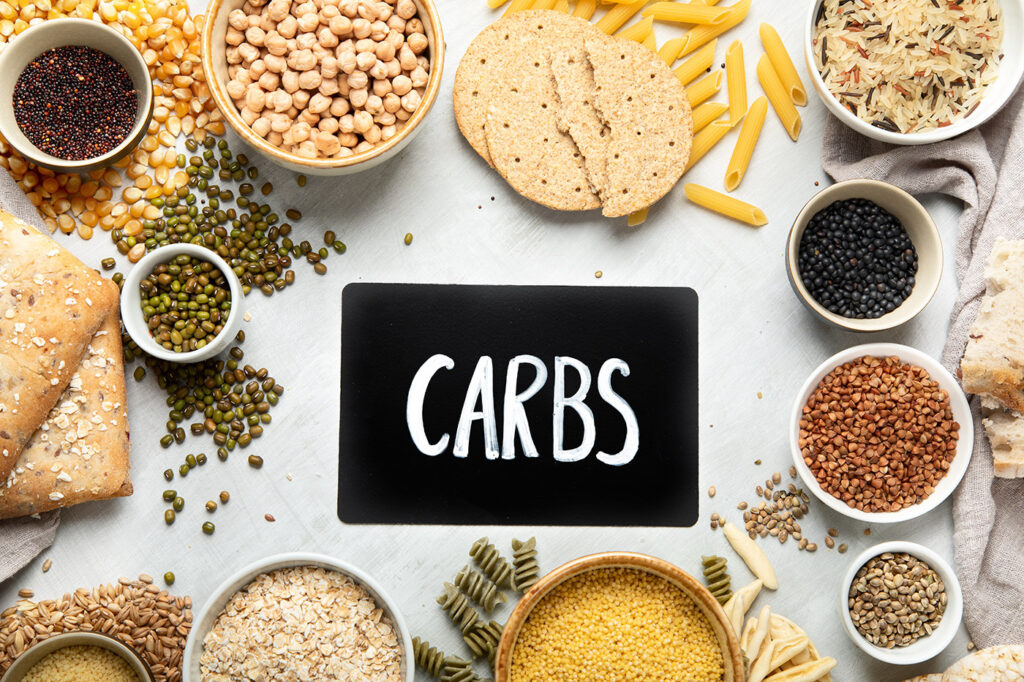Are Carbohydrates Important?
Yes, carbohydrates are the most important source of energy for our body. Once consumed, carbohydrates are broken down into glucose, which powers everything we do from breathing to walking. Carbohydrates also offer other nutrients such as vitamins, minerals and dietary fibre that are beneficial for our health.
Recently, low or no-carbohydrate diets have become more popular as a way to help with weight management or blood sugar control. However, such diets are often accompanied by increased fat intake, which can affect cholesterol levels and heart health. These diets may also be harmful for some diabetics on medications.
Simple vs Complex Carbohydrates

Simple carbohydrates are found naturally in foods such as fruits and milk. They are quicker to digest and may produce a spike in blood sugar levels. Nonetheless, such foods can be included in a balanced diet as they offer other nutrients such as vitamins, minerals and fibre.
Take note that added sugar is also a form of simple carbohydrates. Sugar is added to many foods and drinks during processing. Such products may be high in calories, but lack vitamins, minerals and fibre.
In contrast, complex carbohydrates take a longer time to digest and provide a more stable source of energy. Complex carbohydrates can also be higher in fibre and lower in GI. Hence, make healthier choices to choose complex carbohydrates over simple carbohydrates in your daily diet.
Examples of complex carbohydrates include:
- Wholegrain products such as wholemeal bread, brown rice, oats
- Starchy vegetables such as potatoes, pumpkin, corn
- Legumes such as kidney beans, green beans, chickpeas
Is Fibre Important?
Besides looking at carbohydrates, look out for food which are higher in Fibre. Fibre provides benefits such as:
- promoting bowel movement
- keeping us full for a longer time and prevents overeating
- slowing down sugar absorption for better sugar control
- reducing cholesterol levels and the risk of heart disease
Wholegrains, vegetables and fruits are good sources of fibre.
What is Glycemic Index (GI)?
The next factor to consider in choosing healthier food is Glycemic Index (GI). GI measures how fast your food or drink raises blood sugar levels, and ranks carbohydrates from 0 to 100. The higher the GI of a food, the faster blood sugar levels are expected to rise.
Food choices should not be based on GI alone, since other factors such as processing, cooking time, the presence of protein and fats can lower GI.
How to Achieve a Balanced Diet?


To help in better weight management, it is crucial to combine physical activities with a healthy, balance diet.
- Choose wholegrains such as wholemeal bread for daily consumption
- Eat balanced meals with wholegrains, proteins, fruits and vegetables
- Healthier snacks can include carbohydrates such as low-fat yoghurt, fruit, wholegrain crackers or wholemeal bread
- Compare the fibre content between products of the same food and choose products higher in fibre
- When choosing lower-GI products, consider the fat and sugar content too
- Speak to a dietitian to find out more about your caloric requirements and the recommended amount of carbohydrates you should be consuming, try to choose complex carbohydrates for a healthier diet
References:
- https://www.skh.com.sg/news/patient-care/sgh-doctor-on-safety-of-ketogenic-diet
- https://www.healthhub.sg/programmes/diabetes-hub/understanding-carbohydrates#understandingCarbohydrates
- https://www.healthhub.sg/live-healthy/more-fibre-for-a-fit-and-fabulous-you
- https://www.straitstimes.com/singapore/health/diabetes-the-rice-you-eat-is-worse-than-sugary-drinks
- https://www.healthhub.sg/live-healthy/what-is-the-glycaemic-index

